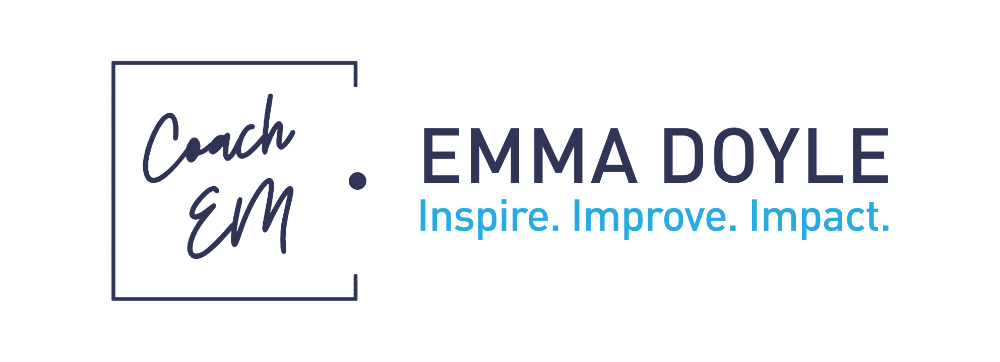Leadership Coach #148: Clifford Mogan - Navigating the Dual Responsibilities of The Coaching Leader
Welcome to The Coaching Podcast, your go-to source for insights into the dynamic world of coaching, leadership, and personal development. In this episode, we delve into multifaceted topics that define the essence of effective coaching and leadership. From exploring the dual responsibility of leadership - driving performance and developing capability - to uncovering the psychology and neuroscience behind coaching, we navigate through the intricacies that make coaching an essential asset for any leader. Our guest, Clifford Morgan, a seasoned organizational psychologist with over 17 years of service in the Royal Australian Air Force, brings a wealth of experience in leading and coaching diverse individuals. We'll journey through Clifford's transformative moments, including his best coaching experiences, the power of silence in coaching, and his personal evolution from military service to studying psychology. Join us as we unravel the mindset, skillset, and practices that make up great coaches and leaders.
Here is a summary of the key points;
- 1.28: Best coaching moment: Don't happen during the coaching, they happen afterward when you find out the impact that you had. Also, when you equip leaders to create change and then they go and empower others to do the same = exponential effect!
- Coaching quote: "Your aim is to change everything by doing nothing."
- 5.34: Worst coaching moment: Silence is more effective than any coaching question because it creates a space for people to think, elaborate, and go deeper, which can create really useful insights.
- 8.00: Sliding Doors: Having left the military, Cliff pursued the study of psychology, specifically training as a scientist who examines the human psyche in the workplace.
- 9.45: What is the difference between being a psychologist and a coach?
- 12.43: What Makes a Great Coach?
- Mindset - How do you set your mind? What are your mindset fundamentals? What are the anchor points that you use to approach your coaching?
- For example, what are your goals? What are your beliefs (you need to believe that everyone is capable of solving their own problems)? Thought processes and patterns? What's your frame of reference?
- A robust skillset involves not just the ability to ask insightful questions but also the capacity to establish and nurture rapport and trust with the coachee.
- Practice has a dual purpose. Firstly, it involves gaining mastery by consistently honing your skillset. Secondly, it prompts reflection on whether you are approaching coaching as a true profession.
- Mindset - How do you set your mind? What are your mindset fundamentals? What are the anchor points that you use to approach your coaching?
- 16.28: How do you unlock potential? How do you create change in a person? Where are you disciplined in your life? Discipline (time, energy, and effort), tells you what someone values + what they are Passionate about = Recipe for Success
What's your story? - 18.23: Why is harnessing energy so important for leaders? What does life-work integration mean to you?
- 21.06: What is the dual responsibility of leadership?
- 1) Driving performance
- 2) Developing capability
- 22.22: What makes a great pilot (captain)? The ability to empower others.
- 28.10: What did the military teach you about being a great coach?
- 34.17: What is the purpose of your book, The Coaching Leader?
The Coaching Podcast is sponsored by Heyday.xyz/coaches. Heyday is an AI thought partner that turns your conversations into notes, quotes, and ideas into posts. It's a game-changer for business coaches like you who want to turn their information into actionable insights effortlessly. Don't miss out on this opportunity to revolutionize your coaching practice with Heyday! Visit: www.heyday.xyz/coaches
To learn more about becoming a workplace coach or advancing your coaching skills, visit: www.opendoorcoachingusa.com or email: [email protected]
About Clifford Morgan
The world is full of leaders who have the best intentions, and often fail to make the impact they were seeking. Successful leaders are those who are able to achieve great results by making the impact they intend to. So how can we shift from simply having good intentions to actually having the outcomes and impacts that we are after? What does it take to shift from intention to action? We have the person who knows. Our speaker has served with the Royal Australian Air Force for over 17 years and is now an endorsed organizational psychologist. His years of service leading and coaching people – both in uniform and out – bring a wealth of experience that provides a unique perspective to assist his clients. He has coached everyone from CEOs to military commanders and frontline workers to Commonwealth Games hopefuls. He’s particularly passionate about helping leaders become luminaries, people of prominence within their organizations, achieving exceptional results, navigating growth, and developing pipelines of leaders within their companies. Please give a warm welcome to our speaker today and The author of The Coaching Leader, Clifford Morgan.
Connect with Clifford
Website: https://cliffordmorgan.com.au
Linked In: https://www.linkedin.com/in/clifford-morgan-946b6077/

